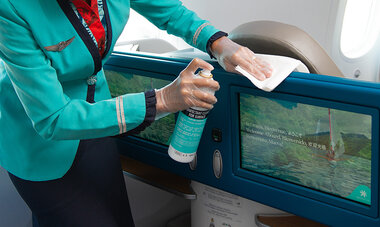
Documents and entry requirements
Please note that the entry requirements stated on this page are subject to change without prior notice. It is your responsibility to comply with the requirements of the countries you plan to visit.
We would like to emphasize that while we make every effort to provide accurate information, Air Tahiti Nui assumes no liability for any inadvertent errors or omissions.
Please remember to check with the relevant authorities and your travel agent before each trip abroad to ensure compliance with the requirements of the transit or destination country.
See the conditions for your trip below:
Air Tahiti Nui recommends that all travelers stay informed about the health situation of their destination countries prior to their travel. Please refer to official government websites.

